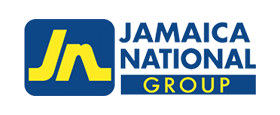
Howard Mitchell, retired attorney-at-law and chairman of the Appeal Tribunal of the Jamaica Agricultural Regulatory Authority maintains that consistent openness, honesty and willingness to admit to faults are fundamental to transparent leadership.
“To build a lasting enterprise for your stakeholders starts with being transparent and winning trust with disclosing your motives and your purpose to those who you wish to convince,” he said.
“Have conversations constantly with your stakeholders about services and any defects in those services. Do not ‘beat around the bush.’ Confess your mistakes and correct them,” Mr Mitchell, who is also a former president of the Private Sector Organisation of Jamaica implored, adding that “an American consultative study done this year by Nielsen shows that 94 per cent of customers would remain loyal to a transparent brand.”
Mr Mitchell was addressing senior managers and executives of The Jamaica National Group during a leadership coaching session held virtually recently under the theme, “Leading with Transparency.”
Earl Jarrett, chief executive officer, The Jamaica National Group, noted that transparency has been a core value since the organisation’s birth in 1874, and which has led it to being recognised as a trusted institution.
“Institutionally, we have created the policy framework for transparency. We emphasize the importance of record keeping, internal audits, annual general meetings, financial statements, and reporting to the members and customers. Transparency has been at the hallmark of what we do.”
During the leadership session, Mr Mitchell established that creating trust is an integral part of transparency, and along with accountability, it is critical to successful leadership and managing change.
“Leadership is not simply presenting people with new directions and expecting them to understand and follow. If it is to be successful it must gain the trust of those who follow. It must break down fear [and] uncertainty. Trust gives you an opportunity to make disclosures to tell people the truth. Trust causes people to stop and listen to you.”
He cautioned that trust can be destroyed by ascribing blame when an unfavourable situation occurs.
“It is necessary when something goes wrong to find what happened [which] is necessary to find out the root cause. It is not necessary for the principal purpose of the exercise to blame. When someone makes a mistake, find out why that mistake was made, take steps to put in place corrective measures and rehabilitate the maker of the mistake if that is possible,” he advised.
Noting that it is human to have faults and make mistakes, Mr Mitchell emphasised that a true leader will rise after each setback and do everything in his capacity to overcome shortcomings.
“Senior management must act responsibly, must be trustworthy, must be truthful, [and] must have the facts before you take steps. Positive leadership involves truth and accountability. Our society is cynical in its expectation that leaders never accept blame; that leaders face a different and lesser standard of responsibility,” he asserted.
Tell the truth
Mr Mitchell further recommended that organisations can achieve transparency by sharing as much information as is practical and prudent with employees to help them perform efficiently thereby building trust.
“If your employees trust you, they will communicate that trust to the people they deal with. Start a chain reaction by announcing clearly your intention to your stakeholders. Tell them where you’re going and live the responsibility of the purpose that you announced.”
Similarly, Saniah Spencer, Marketing Executive, The Jamaica National Group, underscored the value of transparency.
“When there is a deviation from transparency, it can result in distrust and lead to a decline in practices of other core values. Transparency reduces bureaucracy, it also encourages collaboration instead of internal competitiveness and silos, connecting rather than isolating,” Ms Spencer related.
“Transparency does not necessarily mean agreement, but importantly, it means that for everyone, we need to feel safe about communicating, whether it be our ideas or opinions, sharing insights, and also even sharing our learnings and mistakes because that’s also important,” she said.
Transparency is one of four core values of The Jamaica National Group, integrated into the operations and culture of the organisation to support its effort to provide consistency in the customer service experience. The other values are dependability, authenticity and respect.


